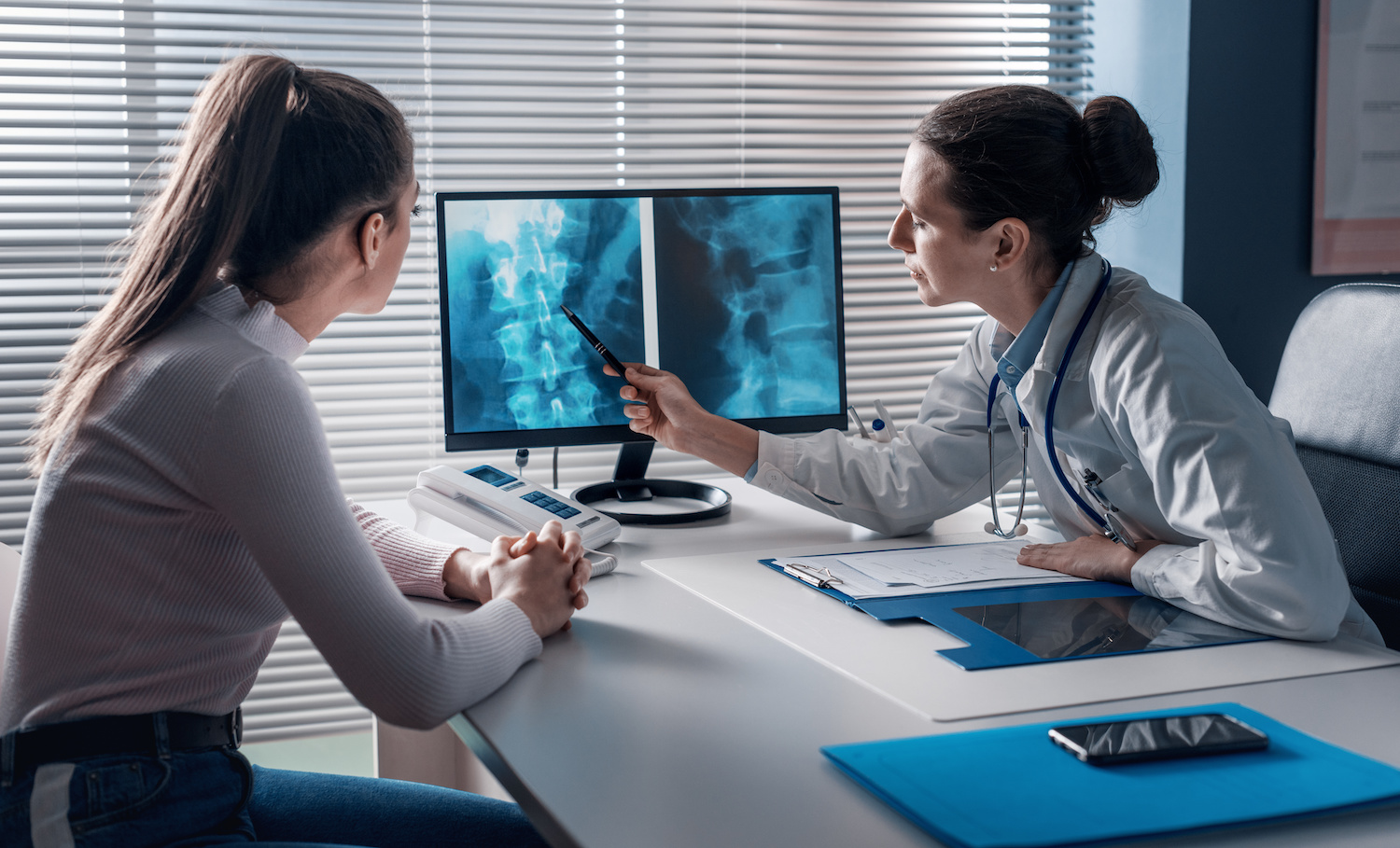Spine Care & Treatment
Spine-related diseases can range from herniated discs and spinal stenosis to more severe conditions like scoliosis and spinal tumors, creating the need for effective spine care and treatment. North Carolina Neuroscience & Spine Center offers several treatment options depending on your condition, including physical therapy, medication, non-surgical procedures, and surgery.
Comprehensive Spine Treatment Services
The spine is an essential part of the human body, supporting its structure and enabling flexibility and movement. It also protects the spinal cord, which is crucial for transmitting messages between the brain and the body.
Spine care and treatment can entail one or more of the following:
- Back Pain Care – Focuses on diagnosing and treating acute or chronic back pain using both non-surgical and surgical methods, tailored to each patient’s needs
- Minimally Invasive Spine Surgery – Uses advanced techniques to reduce recovery time and minimize the impact on surrounding tissues, targeting specific spine conditions
- Radiculopathies – Address nerve root disorders that can cause pain, weakness, or numbness, often involving physical therapy, medication, or surgery for relief
- Reconstructive Spine Surgery – Aims to correct spinal deformities or injuries, restoring alignment and function through complex surgical procedures
- Spinal Cord Tumors – Focuses on the management of benign and malignant growths within or adjacent to the spinal cord, often requiring specialized surgical techniques
- Spinal Fusion – A surgical technique to join two or more vertebrae to stabilize the spine and alleviate pain caused by movement
- Spinal Stenosis – Treatment options aiming to relieve pressure on the spinal cord or nerves. May include medication, physical therapy, or surgery
- Spinal Malformations – Address congenital or acquired abnormalities in the spine’s structure, with treatment modalities varying based on the type and impact of the malformation
- Spinal Injuries – Providing acute and rehabilitative care for spinal injuries, focusing on minimizing long-term impact and enhancing recovery
- Spondylolisthesis – Targets the displacement of a vertebra, often involving physical therapy, bracing, or surgery to relieve pain and restore function
- Vascular Abnormalities of the Spine – Involves the diagnosis and treatment of blood vessel conditions affecting the spine, which may require surgical intervention for relief
Expert Spine Diagnostic Procedures
Diagnostic strategies for spinal issues provide accurate assessments for planning treatments. Each procedure below has a specific role and will be selected based on the suspected condition and the patient’s symptoms, giving a targeted approach to spine care. Depending on your situation, we may advise you to take one or more of these diagnostic procedures before or after your initial consultation with our medical team:
- MRI (Magnetic Resonance Imaging) provides detailed images of the spine’s soft tissues, like discs and nerves.
- CT scans (Computed Tomography scans) offer precise images of the bone structure.
- X-rays highlight alignment and detect fractures.
- Electromyography (EMG) measures muscle response to nerve stimulation, identifying nerve damage.
- Discography injects dye into spinal discs to pinpoint pain sources.
- Myelograms use dye and X-rays to reveal spinal canal issues.

Why Patients Trust Our Spine Specialists
Our team consists of highly skilled and board-certified specialists who have undergone rigorous training in their respective fields. They remain committed to staying up-to-date with the latest techniques and advancements to enhance the quality of your care.
Collaboration is at the core of our approach. When necessary, we work closely with other specialists within the UNC REX and UNC network to provide you with a comprehensive and well-coordinated treatment plan. We believe effective communication is vital, and we maintain a strong line of contact with you and your referring physician throughout your care journey.
Our ultimate goal is to facilitate your recovery and return you to your primary physician’s care as soon as medically feasible. By focusing on teamwork, innovation, and personalized care, we aim to deliver the best possible outcomes and ensure your well-being throughout the entire treatment process.
Frequently Asked Questions About Spine Care
What are some early signs that I may need spine care?
Early warnings include persistent back pain, numbness or weakness in the limbs, and difficulty maintaining posture. If these symptoms interfere with your daily activities, consulting a specialist is recommended.
How can I prepare for my first spine care consultation?
If available, bring a detailed medical history, including previous imaging or diagnostic results. Be ready to discuss your symptoms, lifestyle, and any prior treatments you've received. Writing down questions or concerns beforehand can also help ensure all your issues are addressed during the visit.
What is the recovery time for minimally invasive spine surgery?
Recovery times vary depending on the procedure. However, minimally invasive techniques generally allow for faster recovery compared to traditional surgery.
Can spine conditions be prevented?
While not all conditions are preventable, maintaining good posture, staying active, and avoiding heavy lifting can reduce the risk of spine-related problems. Regular check-ups can help detect issues early.
What should I do if I experience sudden and severe back pain?
Seek immediate medical attention, especially if the pain is accompanied by weakness, numbness, or a loss of bladder or bowel control. These symptoms may indicate a serious condition requiring urgent care.
Supporting You All The Way
Contact our medical team for spine care & treatment at North Carolina Neuroscience & Spine Center if you’re experiencing any of these issues. We’re ready to help you with solutions for your spine health.


